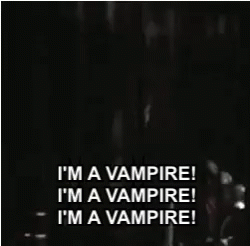"Ultimately," says Bray, the choice "was down to, 'How immersive do we want the story to feel?' What having a voiced protagonist and a slightly more established character gets us is, we can go deeper into the customization, and deeper into experiencing [Phyre's] role by doing that—as opposed to trying to go more broad and encompassing all the various possibilities"
The idea of a character limited in thematic scope, with just four of Vampire: The Masquerade (VTM)'s clans to choose from (down from Bloodlines 1's initial seven), might be a bitter pill to swallow for some fans. Still, Le Bray's quick to reassure me that "there's still a lot of control there. And there's still a lot of personal personalization and player choice. But it's not in such a way that it stops the story."
...
"I don't need to use an entire paragraph to say 'this character is sad' … you can get that across with the tone of voice—like maybe the line they're saying has that sadness built in, or that emotional quality built in, and that subtext is there," Le Bray says, bringing up the CRPGs of old. "There were a lot of games where you had to have giant walls of text [but] the little smirk or a raised eyebrow gets just as much across. There's a lot more immersion we can give by having a [voiced protagonist]."
...
I also brought up what Le Bray calls the "dreaded paraphrase mismatch". For the example I used, I invoked Mass Effect 1's reporter scene, where the dialogue choice "Time to shut you up!" leads to Shepard saying "I've had enough of your snide insinuations", before decking a journalist in the face.
"Yup!" Le Bray says, laughing: "I know exactly that moment."
"Anytime we ask the player to make a choice, we want the player to get the outcome that they feel they've earned … If I press the B button to jump, and my character doesn't jump, that's a problem—it's the same kind of thing with the dialogue choice. If I want the character to yell at this other character, and I choose [that option], and it goes 'please can you just be nice to me?' it's like ugh, I didn't want that to happen."
To avoid those situations, Le Bray talks about internal play tests, where "we can send that dialogue around to other people and be like, 'hey, does this make sense to you?'" However, he also says they're experimenting with subverting expectations. "Sometimes we get to play with that, 'cause if they expect one thing, what if we do exactly the opposite, or some variation of it?"
























